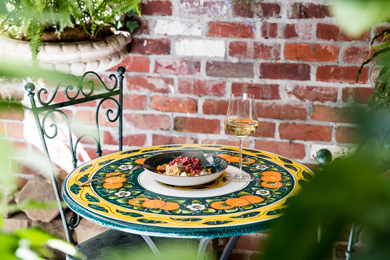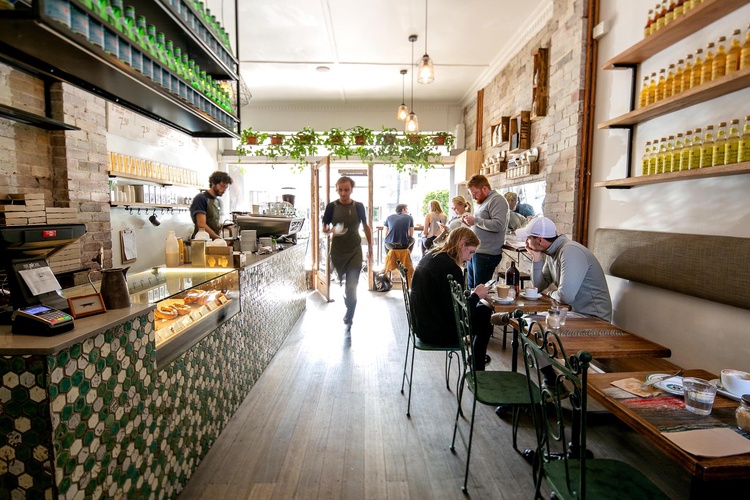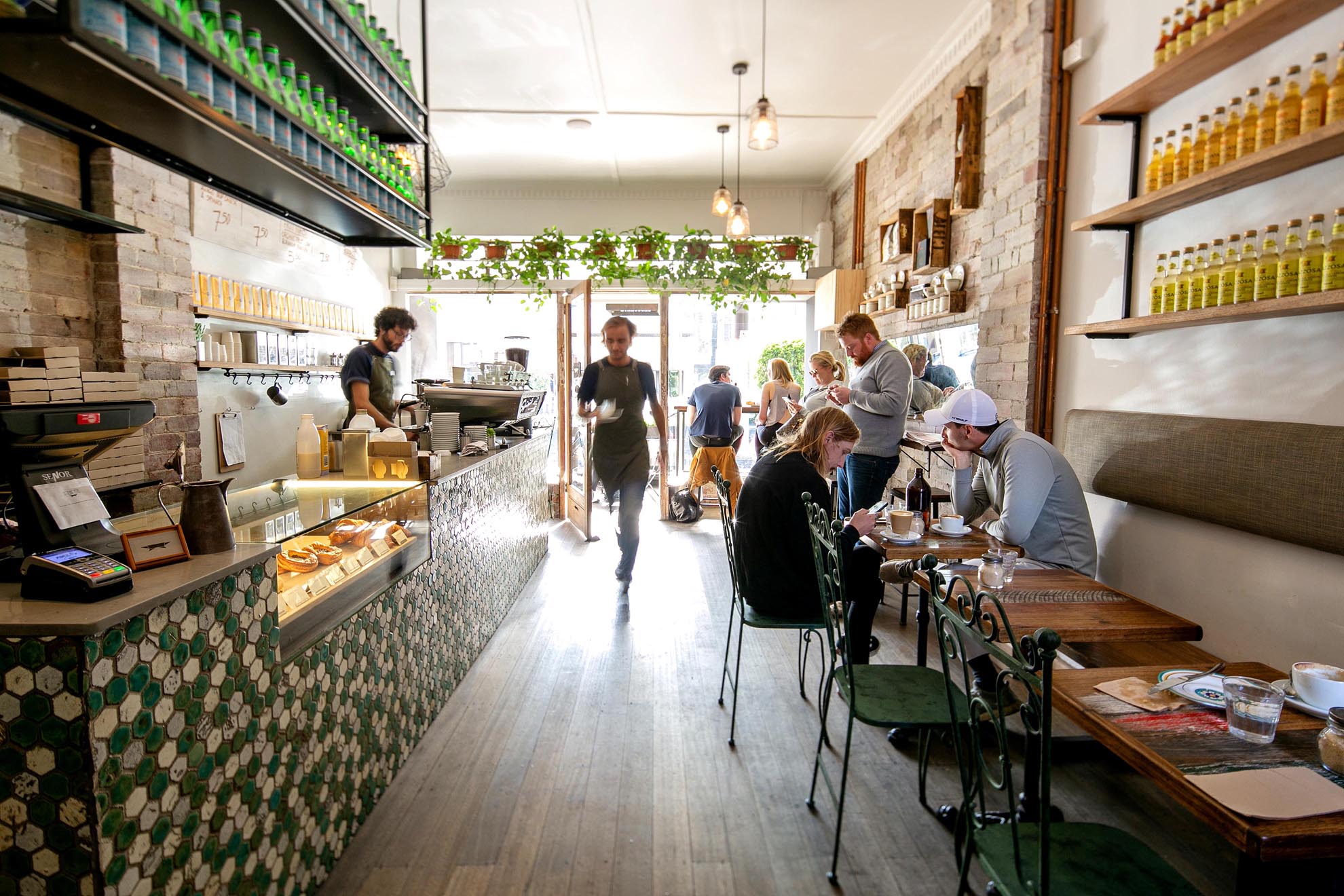Technically, the area is no longer considered a suburb, though it served by a multitude of train lines including Pakenham, Cranbourne and Frankston.
Officine Zero sits among other bars and restaurants that crowd the crossroads between Toorak, South Yarra, Prahran and Armadale.
I visited the popular spot at the suggestion of my wife, who read a review during one of Melbourne’s numerous lockdowns.
The premises are long and narrow: there are high bar tables, streetside dining options, a lengthy banquette designed for larger groups, and a stunning marble-topped bar lined with green tiles.
Out past the kitchen, the back of the restaurant opens up into a delightful backyard.
Claudio Casoni, born in the town of Sassuolo in Northern Italy, studied in Modena before attending university in Bologna.
Casoni graduated with a degree in Chemical Engineering and spent a few years working in the field.
In 2010, in search of a new reality, the 28-year-old embarked on an adventure with some friends.
“I arrived in Perth with a Working Holiday Visa,” Casoni said.
“After two years, I backpacked my way around, trying to deepen my understanding of this extraordinary country.
“Even though the weather can be crazy, Melbourne had a certain charm compared to all the other cities I visited.”
Casoni began to consider extending his visa and remaining in Australia.
Due to the country’s shortage of engineers, the Department of Immigration had begun to expediate the process of becoming a permanent resident for those they deemed qualified.
Thus expediated, Casoni came to the realisation that he was not destined to continue his career as an engineer and decided instead to pursue his passion for coffee.
 The partners behind Officine Zero, Armando Al Khatib and Claudio Casoni
The partners behind Officine Zero, Armando Al Khatib and Claudio Casoni
“When I realised that I was able to stay in Australia, I thought I should embrace the theme of change and apply it to other areas in my life,” Casoni said.
“I decided to turn my passion into my career and open an espresso bar with my partner Armando Al Khatib.”
The pair found the perfect spot for the bar in 2014, in a street full of specialised shops, restaurants and bars - a veritable corner of Europe.
In the beginning, Officine Zero only served coffee, roasted by the renown Caffè Terzi in Bologna.
Casoni found that the pursuit of his passion was not dissimilar to his background in chemical engineering.
“We make coffee in a way that is so highly specialised, it draws from the principles of chemistry and physics,” he explained.
“I like to think that I haven’t strayed far from my original industry.”
After their first year of business, Officine Zero had progressed from serving solely coffee to offering panini and piadine.
The following year, with the addition of Torino-born chef, Gabriele, Officine Zero began to serve traditional Italian dishes.
The menu consisted of classics such as vitello tonnato, octopus and potato salad, fried calamari, eggplant and zucchini.
Artisanal pasta varieties, produced via traditional methods using bronze extruders, also began to appear on the menu, including cavatelli alla Norma and maccheroncini in a cacio e pepe sauce.
 A signature Officine Zero dish pictured in the restaurant’s outdoor seating area
A signature Officine Zero dish pictured in the restaurant’s outdoor seating area
The owner’s ideas, passion, hospitality and strong Italian foundation have made Officine Zero a popular spot in Hawksburn Village.
Even during the long months of lockdown, the restaurant stayed open, allowing their 22 staff – many of whom are on temporary visas – to continue working.
Officine Zero transformed into an online platform, taking orders for takeaway and pre-prepared dishes that could be enjoyed at home.
Now, eight years after it first opened, the restaurant is undergoing another transformation.
“The restaurant next door became free, so we acquired it,” Casoni said in an interview with Rete Italia.
“We’re working on expanding the restaurant, the kitchen and the menu.”
Officine Zero will soon be able to offer their ever-expanding clientele an increased number of tables, and with them, new pasta dishes on the menu.
The expanded premises will also give patrons a glimpse of the pasta laboratory, housed in an old garage with large windows, where kitchen staff will make fresh pasta daily.












